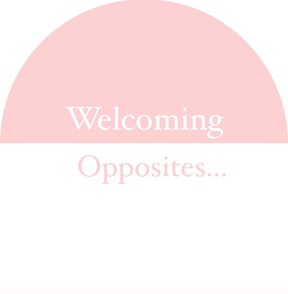You know when you go on a trip and buy a special souvenir? Like a tiny ceramic vase or a silk scarf? Maybe a special bottle of olive oil or a beautiful antique sterling tray from a flea market? You know how, when it's time to pack, sometimes you have to leave something at the hotel? Maybe a sweater that you never really wear or a pair of shoes that it turns out just aren't that comfortable? It's often an impulsive decision, a rushed moment where you have to zip your suitcase and everything simply won't fit. When you get home you rarely miss the sweater or the shoes. You get joy from looking at the little vase on the bathroom shelf or wearing the new scarf. These new items bring memories of your journey and you are glad you brought them home with you.
In a few years' time, you might put the vase or the scarf into the Goodwill pile. The olive oil either went bad or it is all used up. You regifted the antique tray to a friend who had a birthday and you forgot to get them a gift. Those special items have served their role and now they can move along.
When we make that decision to leave our old sweater or shoes in the hotel in Belize and take home the vase or the scarf, we are deciding to let go of the old and bring in the new. And we do this time and time again with each year that passes. Change is the one true constant in our lives.
The New Year is a conscious opportunity to look inside our baggage. New Year's Day feels cliche, and to many, it is an annoying and stress-filled day. The pressure to know what to commit to, to declare as a resolution, feels contrived. But really we aren't coming up with anything new. The resolutions, the commitments, are already here. The New Year is simply a chance to look into the suitcase and see what we've acquired in our travels in the year passed and decide what we want to keep. It's an acknowledgment of what we've learned on our journey. And then, just like making the hard decision on your trip to Belize, in the same way, you'll note what hasn't really been useful and leave that stuff at the hotel.
I am a constant seeker of souvenirs. I am forever hunting for treasures that will symbolize where I've been. This year, in my travels through the Pandemic, I added more writing, a love affair with the Peleton, and a daily dip in Lake Washington to my suitcase. I love those treasures and I want to keep them. I'm not practicing yoga every day like I used to, just once or twice a week. And I'm not baking as much as I did in the past. There's simply not enough space in the bag for all of it.
But as we come to a new year I spend some time deliberately thinking about the things I've added to my baggage. These are my chosen souvenirs from 2020, the treasures in my baggage, the precious items I am excited about that remind me of the journey I'm coming home from. These new souvenirs are the things I choose to keep. Next year will be different. Maybe yoga will start to come back, or baking.
2021 is a new adventure, an opportunity to collect souvenirs as we go. As we move through the next year, instead of holding on tight to each new resolution, just be aware of it in your life. Does it serve you? Are you using it often? And be an explorer in this new year. What feels good? What is interesting or invigorating? Collect the souvenirs as they come and at the end of the year, you can look into your suitcase again and decide what to keep and what to leave behind.




















